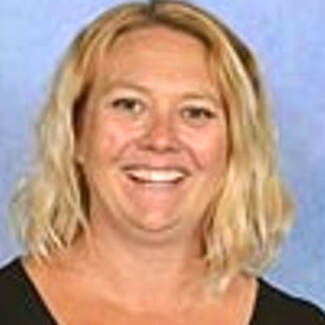|
Students who are unable to communicate verbally are being given the same learning opportunities as their peers thanks to an award-winning program designed by a Sunshine Coast teacher.
Jennifer Irving, a Nambour Special School (NSS) teacher, has won this year’s inaugural Queensland College of Teachers TEACHX Award for innovation in Teaching for her advocacy of all students having a voice, and her creation of a tool to track her students’ literacy progress. That tool is now being trialled across Queensland. |
|
Ms Irving created the Emergent Literacy Assessment Tool (ELAT) after she led a teaching group in designing a new literacy framework, and the need for a systematic means to assess the current literacy skills and engagement of students with severe and multiple disabilities became apparent.
“I went about and looked for an existing tool—I didn’t want to invent it I can assure you—but there was just nothing commercially available that was going to meet the needs of our students; their progress is very incremental and we found that the tools that existed just couldn’t capture the small increments of learning that the students were achieving, so I guess I went about and created a tool that was going to adequately reflect that for our students,” she said. The tool looks at small increments of learning across a variety of literacy-based activities, including interactions with books, symbols and print and engagement in storytelling, and writing activities. It tracks students across five literacy ability levels from ‘Encountering’ to ‘Emergent transitional’, with a particular focus on students with severe and multiple impairments working on a highly individualised curriculum. These students can now have their learning moderated and celebrated. The NSS ELAT initiative won the Showcase Award for Excellence in Inclusive Education last year and is now being trialled in 17 schools throughout Queensland. Ms Irving’s specialist skills have also led to non-verbal students, who had been unable to formally communicate, “being some of our most vocal”. Ms Irving, through her role in supporting student communication development ensures that all students with complex communication needs have access to a robust communication system which is modelled to them, are taught how to initiate communication and have access to use their systems expressively, irrespective of any physical challenges. “One young man came into my class, he had no formalised communication system that we knew of; however, it was apparent from his responses and interactions that he understood what was going on around him,” Ms Irving said. “Through the use of ‘yes’ and ‘no’ symbols and auditory and visual scanning, I was able to establish that he knew the letters and letter sounds of the alphabet, could order numbers from 1 to 30 and was able to tell me his favourite sporting team, all by the end of his first day. That young man now has an eye-gaze device mounted to his wheelchair and he will just never stop ‘talking’, he has so much to say!” she said.
“My passion comes from ensuring that all of these kids, even though they are non-verbal and their disability has massive impacts on their learning—my passion is just ensuring that every single one of those kids has a voice, and are active participants in their education, and have a means to demonstrate their knowledge. It’s exciting stuff and I love it.” Ms Irving received her award at a ceremony at Customs House on Thursday 24 October 2019, the eve of World Teachers’ Day in Australia. She has also received $5000 for professional development. |

